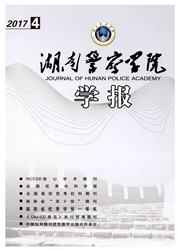

 中文摘要:
中文摘要:
正处于社会转型时期的中国,在司法领域存在着两种不同的法律传统,即西方化的法律传统和以马锡五审判方式为代表的乡土化的法律传统,这两种法律传统在我国基层司法中存在着冲突和博弈。社会转型时期中国基层司法体现出了形式正义与实质正义、克制司法与能动司法、司法权威与司法为民的悖论现象。对作为乡土社会司法实践代表的马锡五审判方式进行比较深入地背景及特征探讨,以及对社会转型时期我国基层司法中存在的悖论现象进行揭示,使得我们能对我国处于社会转型时期的基层司法进行深入地反思。反对二元对立的思维,在现代法治理念前提下进行传统价值的传承,同时在立足于本土资源的基础上进行创造性转化。
 英文摘要:
英文摘要:
During the social transition period of China, there are two different legal traditions in judicial field, that is, the legal tradition of the West and the Ma Xi-wu trial mode which as the representative of the local legal tradition. There are conflicts between these two kinds of legal tradition in the local courts in our country. During the period of social transformation, the local courts presents the paradoxical phenomena of formal justice and substantive justice, restraint of the judicial and judicial activism, judicial authority and justice for people. As the representative of the local courts' practice, the Ma Xi-wu trial mode is worth studying its background and characteristics. Through studying the paradoxical phenomena of China's local courts in the social transition period, we can review China's local courts deeply. Against the binary thinking, to inherit the traditional value at the premise of the modern judicial concept, while to realize the creative transformation based on the local resources.
 同期刊论文项目
同期刊论文项目
 同项目期刊论文
同项目期刊论文
 期刊信息
期刊信息
